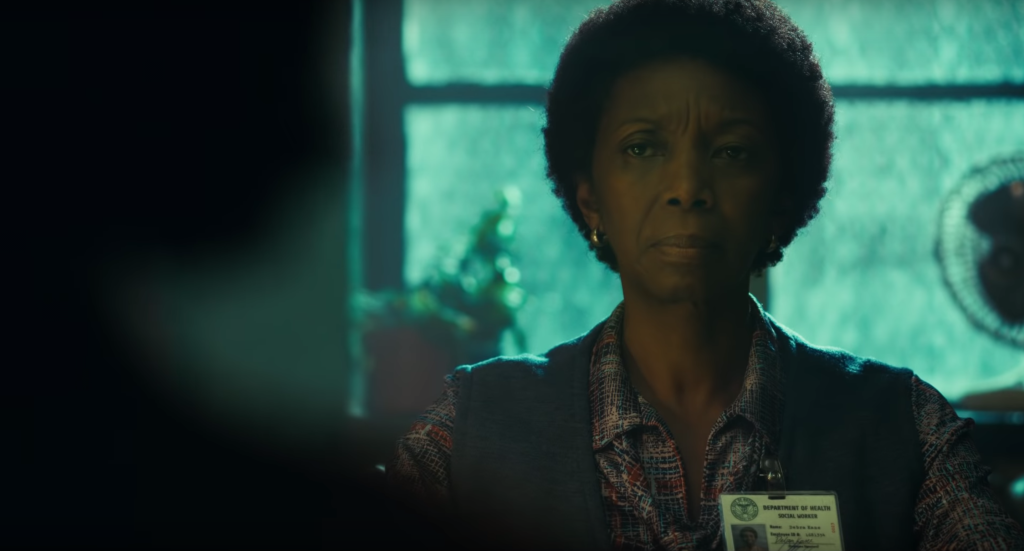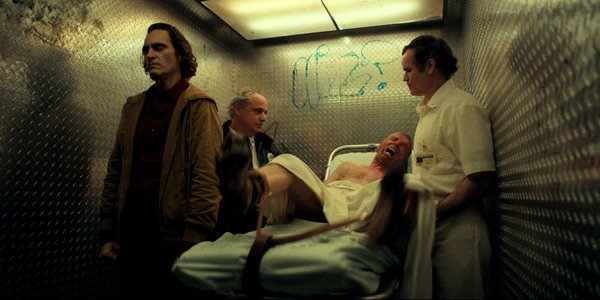Joker: living without class-consciousness and solidarity

Fran Lock reviews Joker's treatment of violence, poverty, class, gender and race, and the way it subverts 'one of capitalism's most pernicious fictions'
If you want to get ahead in life, just go for it on your own. Facing obstacles? There’s nothing you can’t overcome and put right. You just need to put your mind to it and work harder.
This self-transcending narrative has to be one of Western capitalism’s most pernicious fictions. It’s everywhere. It permeates our literature, and saturates our film and television. It’s in every beloved underdog story, anywhere a protagonist achieves their dreams by dint of hard work, dedication and individual exceptionalism. In the realm of the self-transcending narrative the social forces that create and perpetuate financial and social disparity are obscured; “adversity” is only meaningful as it applies to a character’s personal struggle, as something to atomistically triumph over. Poverty, for example, is routinely depicted as a depoliticised force of nature, an obstacle the individual in poverty is responsible for overcoming. This elides the brutal truth: that poverty is a deliberately engineered system of economic exploitation, the overthrow of which demands radical, collective action.
Capitalism has no interest in acknowledging this fact. Instead, it uses cultural platforms to peddle the message that we can only transcend our circumstances through extraordinary individual effort. The results of this poisonous philosophy are three-fold.
First, that people in poverty are encouraged to view each other as competitors, a position which is toxic to all forms of affective solidarity, and which prevents us from coming together to organise against that which besets us. Second, the focus on individual accomplishment as the only viable route out of poverty recasts societal failures as personal ones, and this encourages the fatally misguided idea that those born into poverty persist in poverty because they are weak, lazy, or otherwise morally deficient. Finally, a worldview that enshrines individual transcendence at the expense of the collective valorises capitalism’s every selfish, acquisitive gambit, placing undue value on the signifiers of material wealth, indifferent to how, and at whose expense, that wealth was created.
In short, at the heart of the seemingly benign underdog genre lurks the insidious propaganda of late-stage capitalism. It’s a form of propaganda, I’m grateful to say, that Todd Phillips’ recent film, Joker, has zero tolerance for.
I’ve been to see Joker twice now, and I may very well go again. The film has a kind of feral poetry to it, and Phoenix’s performance as the titular character achieves, at moments, a species of gaunt, contorted eloquence that is both pathetic and viscerally frightening. These aspects of the film, however, are extensively covered in other reviews, so I would like, instead, to focus on some critically underexplored aspects of its politics and ethics. Specifically, I would like to address the film’s engagement with the self-transcending narrative, and what it has to say about our relationship, as both audience and as citizens, to the underdog genre in mainstream cinema.
Underdog stories......
In underdog stories the central plot is typically resolved in one of the following ways. Firstly, the central protagonist achieves self-actualisation through romantic intimacy. In this version of the narrative, the character may still be living in straitened circumstances, but thanks to a deep, personal connection with another human being is able to transform their own outlook, embracing and valuing what they have, and accepting the world around them. This plot is the staple of romantic comedies and so called chick flicks.
Secondly, through dedication and hard-work and after years of struggle, the central protagonist succeeds in their area of endeavour, finally having earned the validation and respect of their peers. This is the stuff of myriad sports genre films, often “based on a true story” however selectively, such as Ron Howard’s 2005 Cinderella Man, or Bennett Miller’s 20011 Moneyball, but it also appears with frequency in spurious rags to riches biopics of various celebrities.
Thirdly, through the recognition or surprise intervention of an individual who embodies all the characteristics the central protagonist aspires to, the character is given the chance to prove themselves and shine in their chosen field. My Fair Lady is probably the most famous cinematic example of this model, but we’re probably most familiar with it from reality television shows such as the ever-nauseating X Factor, Pop Idol, or The Voice, where hopeful amateurs compete before a panel of washed up pop singers who presumable embody the kind of fame and success the competitors are striving for.
Fourthly, a miracle occurs, the unlikely or surprising “big break” that catapults the character from obscurity and into the well-deserved limelight. This particular form of resolution is often referred to as a Deus Ex Machina; the audience are meant to understand this miraculous good fortune not as a stroke of luck, but as somehow fated or pre-ordained, a further proof of the character’s inherent exceptionalism. Danny Boyle’s well-intentioned though ultimately problematic 2008 Slumdog Millionaire is perhaps the most well-known example of this form of resolution.
Each of these plots encourage a form of easy identification in their audience, a palliative to the hardships of their own lives; a vague dream that things could be different if only: if only I could find “the one”, if only I worked harder, if only I got my “big break”, if only my talent were recognised, etc. None of these plots significantly challenge the social status quo, or offer any serious analysis of the conditions that create inequality and social stagnation. The romantic intimacy resolution places the responsibility for change squarely in the domestic and personal realm, leaving the political sphere untouched.
The resolution through continuous effort enshrines the capitalist work ethic without acknowledging the unequal demands of the labour market on the poorest amongst us, or the chronic lack of opportunity and access for talented people in poverty.
The resolution through intervention ignores in the first place, the bald unlikelihood of such an intervention, and places the burden of transformation on individual acts of patronage, not radical political reorganisation. This model also puts the central protagonist in a subordinate position to their patron, constantly competing and performing in order to “earn” their condescension.
Finally, the miracle model is a beguiling fiction that removes change from the arena of human intervention altogether, offering instead an ill-defined dream of transcendence.
.....are another site of rejection
Joker takes a sledgehammer to all of these promised resolutions in turn, transforming each scene of self-actualisation into a site of further disillusionment, rejection and debasement. As Arthur Fleck, the character must acknowledge that the one connection he was able to forge with another person existed only in his mind, that his hard work and effort earned him nothing but mass derision, that the person who best exemplifies the healthy functioning of the self-transcending narrative (Thomas Wayne) not only fails to recognise his worth, but also his basic humanity; that this person is, in fact, repulsed by him. Finally, Arthur’s big break, his Deus Ex Machina moment, is revealed to be nothing but a cynical manipulative exercise, as a TV talk show host courts controversy and chases ratings.

There is no resolution, the film seems to tell us, there is no rising above, there is no way out. This sense of the inescapable pervades the film. It’s in everything from the narrow, litter-strewn streets, the shabby, over-crowded apartment building in which Arthur ekes out his days. It’s in the grim municipality of official buildings. It’s even in the repressed and awkward way that Arthur holds a pen, the laborious motions he makes as he writes and moves, the pent-up, nervous tension with which he inhabits his own skin. Strenuous effort is inscribed across every available surface of this film. The physical exertions and exhaustions the characters are put through –climbing steep, slippery staircases, running in clumsy, ill-fitting clown shoes – mirrors the daily psychological struggle to exist in extreme poverty, to fight against your own erasure and annihilation.
Claustrophobic poverty
Indeed, there is something familiarly claustrophobic about the Gotham of Joker. Everything is cramped, circumscribed and precarious: landscapes, internal and external, movements, pleasures, interactions. It’s troublingly resonant to anyone who has negotiated poverty and the systems that administer you in that poverty.
Two vignettes in particular stand out as being particularly well-realised in this regard. The first is Arthur’s court-mandated conversations with his social worker: the office in which these meetings takes place are small and crowded, bringing the pair uncomfortably close without ever engendering any sense of human intimacy. The whole room is hedged in and crowded out with the apparatus of bureaucracy, even the chairs look purposefully uncomfortable. Arthur’s social worker is palpably exhausted, weary and wary in equal measure. You have the sense from Sharon Washington’s tense yet understated performance of a once-caring person burnt out and overwhelmed by the scale of the problems facing her. Everything she says and does is hemmed in, tightly controlled by official rhetorics to the point of impotence.
At one point she asks him if it helps, having meetings with her, having someone to talk to, and the pathos is gut-wrenching: as if anything taking place in that grimy, underfunded box could be described as genuine conversation. Later, when Arthur tells her she has never listened to him she counters with “They don’t give a shit about people like you, Arthur. And they don’t give a shit about people like me either.” And in that line is reflected an entire dismal history of mental illness and low-income violence; the way in which it rebounds so often on those with whom the perpetrators should feel the stirrings of solidarity.
Washington’s character, in that moment, realises something that Phoenix’s does not, that the power elites that govern both their lives regard neither one of them as fully human. She looks beaten and sad as she says it. A black woman trapped in a city that wants to crush her, that is indifferent to her on a fatal scale every single day. It is one of the film’s most haunting moments.

The second memorable vignette takes place between Arthur and his boss. Arthur is being disciplined for “skipping out” on work, only he didn’t skip out, he was mugged and beaten by a group of teenagers. Arthur protests his innocence, yet his boss elects not to believe him. Why would teenagers steal a “going out of business” sign? He claims it isn’t credible and demands Arthur replace the sign immediately, or else the money will be deducted from his already scant wages. Why would I steal a sign? asks Arthur, desperately. I don’t know, replies his boss, why does anybody do anything? The logic at play is Kafkaesque: Arthur’s boss is perfectly happy to ascribe arbitrary, nonsensical motives to Arthur, yet won’t countenance the same from a group of random teenagers. Phoenix stands there shaking in dependent, impotent frustration. Any member of the modern precariat can identify with this scene, and the endlessly rolling sock of casual cruelties and minor injustices it represents.
Yet Arthur is hardly a figure of easy identification. Seeing the world through Arthur’s eyes is an uncomfortable experience. His daily interactions are abjectly grinding, serving to shave out any last scrap of good in him. This is worthy of pity, yet Arthur’s responses to the world around him are also underscored by a disturbing narcissism. “I have felt invisible my whole life” he tells his social worker, a black woman who must contend with a million different registers and levels of invisibility daily.
In another scene, Arthur is pulling faces at a child on a bus. The child is laughing and Arthur clearly meant no harm, but the child’s mother snatches her son away, reprimanding Arthur for bothering her child. Because we, the audience, see through Arthur’s eyes, this interaction seems harsh and unfair, but in Gotham city, or its real-world equivalents, might not the ambient threat with which that mother and child live their daily lives have caused her to react, not out of unkindness, but genuine fear? During the era the film is set the Atlanta child murders were also taking place, and black families were confronting each day the terrible truth that their children were basically expendable in the eyes of the law.
Living without class-consciousness or solidarity
Towards the climax of the film it is heavily implied that Arthur’s response to the realisation his one human connection was a hallucinatory figment is to murder the object of his fantasy, and possibly her child (ably played by Zazie Beets and Rocco Luna respectively). Phillips doesn’t show these deaths, or the death of Arthur’s psychiatrist in the penultimate scene, choosing instead to signal this murder with a trail of bloody footprints as Arthur/Joker dances down the hospital corridor to That’s Life by Frank Sinatra.

This is disturbing in a number of ways. It’s disturbing because the climax of the film we are all waiting for, the transformation from Arthur into Joker that we were willing to take place, is born off the backs of these murdered women. Their deaths sit uneasily beside the shooting of the classist Wall Street chauvinists on the train, the point blank rage with which de Niro’s shallow ‘Murray’ is dispatched, or the Wayne family paying for Thomas Wayne’s fatal hubris with their lives. These deaths have cathartic power; they are extreme and exaggerated examples of Gotham’s twisted justice. They are public deaths, reacted to with shock both within the context of the film and within the confines of the theatre alike. The deaths of the film’s black women aren’t even shown; these characters figure as both real (in terms of the narrative) and cinematic collateral. This should make us feel deeply uneasy.
None of which is to say that Joker is a “bad” or lesser film for provoking this unease. Whether Phillips specifically intended his film to raise questions about the intersections of violence, poverty, gender and race is almost beside the point; these questions are a timely and significant aspect of the film, part of its text and texture, and ours: we view it in a racially divided world, through a racially sensitised lens. It’s unavoidable, and actually, it’s salutary. The film isn’t explicitly about race, it’s about class, but any serious meditation on this axis of oppression will inevitably intersect with others. Joker shows, I think how these forms of oppression collide and skew with tragic results.
I came away from my second watching of this film thinking that its central tragedy is the sheer embeddedness of the self-transcending narrative in society; how this hideous creed, wedded in America to a fiercely nationalistic script, inoculates against empathy. Arthur is isolated, ostracised and alone because Gotham, on a systemic level, doesn’t care about him. He is shunned and abused, his labour exploited, by a seemingly endless parade of individuals who have bought, wholesale, into vampire capitalism’s social Darwinist crap.
Yet Arthur is also isolated by his own lack of empathy, by his inability to recognise the deliberate and structural nature of the inequalities that beset him, to see himself as part of a whole. During his live TV interview with De Niro's ‘Murray’ Joker states more than once that he isn’t political, and this is the perhaps the saddest thing of all. His actions, in shooting the wealthy dickheads on the subway, appear to have started a movement, summoned and mobilised a powerful, dissenting ‘we’, yet most of the crowd, and Joker himself, are not engaged in any kind of collective resistance, but a directionless howl of rage and pain, emanating from shattered subjectivities and innumerable private hells.
By the end of the film, Arthur has become the Joker. He has been transformed into Gotham’s best beloved villain, the villain he was always destined to be. And that’s what self-transcendence looks like for Arthur, the steady metamorphosis of a sad unstable man into a psychotically homicidal clown. In this way Phillips’ vision of Gotham takes to cartoonish extremes the very real consequences of living without care, without hope, without class-consciousness or solidarity.

Fran Lock
Fran Lock Ph.D. is a writer, activist, and the author of seven poetry collections and numerous chapbooks. She is an Associate Editor of Culture Matters.
